#Emperor pu yi
Text

Last Emperor Pu Yi, with visiting Indian poet and philosopher Rabindranath Tagore, in the Forbidden City, Peking, 1924.
96 notes
·
View notes
Text
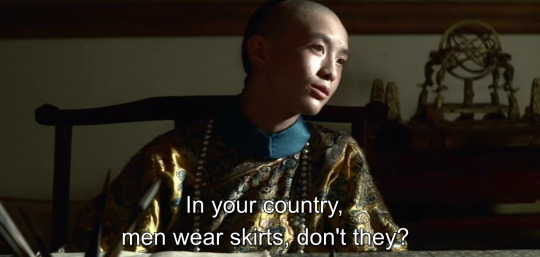
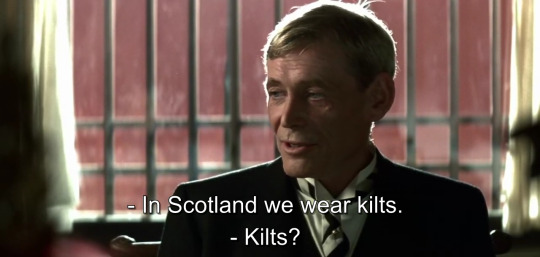
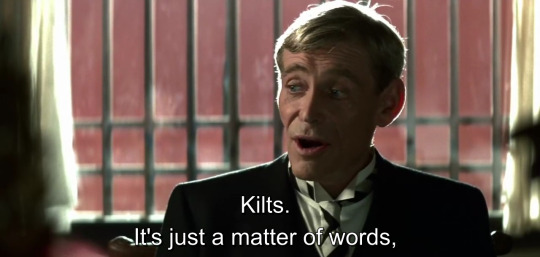
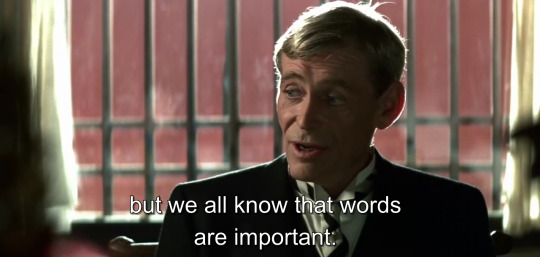

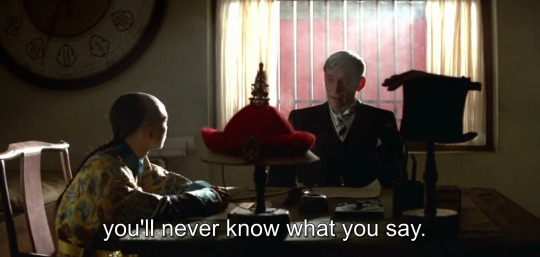
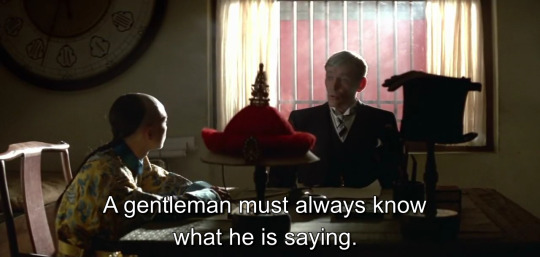

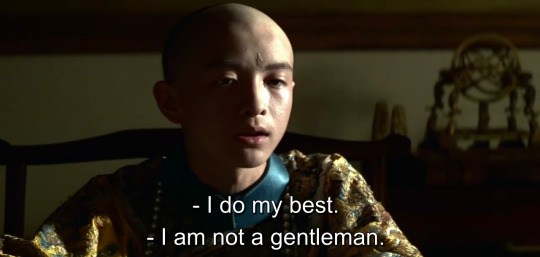

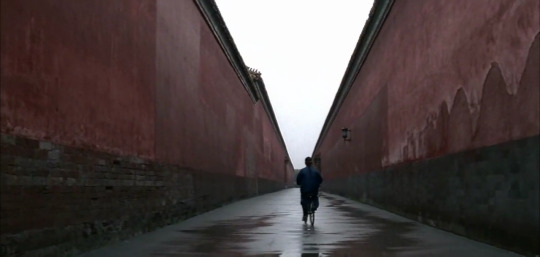
The last emperor, 1987
#biography#drama#history#the last emperor#pu yi#bernardo bertolucci#enzo ungari#mark peploe#tao wu#peter o'toole#expression
3 notes
·
View notes
Text
Production Notes — Background
Bernardo Bertolucci's THE LAST EMPEROR was filmed entirely on location in China in 1986. Bertolucci and his producer Jeremy Thomas were the first Western filmmakers to be allowed to make a film about modern China and it took two years of complex negotiations to obtain the unprecedented permissions which also allowed them to film in hitherto forbidden locations.
On August 4th, 1986, in the Chinese capital Beijing (formerly Peking), the cameras finally rolled on one of the biggest and most ambitious films ever made.
The independently financed production is an epic tale which embraces the entire sweep of twentieth century China and the years of the most tumultuous changes the country has ever seen.
Yet despite its cast of thousands, Itys palatial and exotic locations, its sumptuous design film is also the intimate story of an extraordinary and unique man and his journey of self- discovery, a man who started life as the ruler of half the world's population and ended it as a humble gardener in Peking.
Bertolucci was fascinated by the life of the ex-Emperor and the question which became the heart of his film -can a man change? Did Pu Yi change and if so, how much during the years of his re-education in prison?
"Pu Yi's story can be described in many ways," says Bertolucci. "As a journey from darkness to light or as the Chinese say, changes from a dragon to a normal person, from an Emperor to citizen.
Pu Yi, the last emperor, came to the Imperial throne in 1908 at the age of 3, the Son of Heaven, Lord of Ten Thousand Years, was forced to abdicate at the age of six, was thrown out of the Forbidden City in 1924 with his two wives and drawn into the life of a Western-style playboy. In 1931, he succumbed to the seductive Japanese invitation to mount the throne again and became a puppet emperor in the Japanese controlled state of Manchukuo. Captured by the Russians in 1945, he was returned to China in 1950, expecting to be executed by the communists. Instead, he spent ten years in gaol in the hands of an enlightened prison governor and emerged a changed man. He returned to Peking at the start of the Cultural Revolution and became a gardener, more free than he had ever been before. He died in 1967.
John Lone stars as Pu Yi, Joan Chen as the Empress Wan Jung, and Peter O'Toole as Reginald Johnston, the emperor's tutor. The Director of Photography is two-time Oscar winner, Vittorio Storaro, Production Designer is Ferdinando Scarfiotti and Costume Designer is James Acheson. The screenplay is written by Mark Peploe with Bernardo Bertolucci. Jeremy Thomas is the producer.
In March 1984, Bernardo Bertolucci and Mark Peploe first visited China with proposals for two films. One of them was "From Emperor to Citizen," the autobiography of Pu-Yi which Bertolucci has recently read. The Chinese response was warm and immediate - they welcomed the idea of a Western director filming the story of the last emperor of China.
The filmmakers were pleasantly surprised by the lack of restraints imposed by the Chinese. Although negotiations were long and complex, due to complications inherent in the meeting of two different cultures, the Chinese gave THE LAST EMPEROR unlimited cooperation through the Cinema Film Co-Production Corporation in exchange for the Chinese distribution rights to the film. They approved the script, commenting only on factual inaccuracies and demanding no alterations.
Pu-Yi’s eldest surviving brother, Pu Chieh and Li Wenda who helped Pu-Yi to write his autobiography, acted as official advisers on the film. In unofficial capacities, there were also many other survivors of the period who were tracked down by the production, including Jin Yuan, the prison governor, and Big Li, the manservant.
The logistics of the production were staggering. THE LAST EMPEROR brought together people from six nations. Actors came from America, Great Britain, China, Hong Kong, and Japan to play the 60 main characters in the story, 100 technicians from Italy, 20 from Britain and 150 Chinese worked for 6 months of shooting to put the film on the screen and 19,000 extras, including soldiers of the People's Liberation Army, appear altogether in the immense crowd scenes.
Costume designer lames Acheson gathered 9,000 costumers from all over the world. Imperial Aunt so the wonders and peasants, Japanese army uniforms, Kuomintang uniforms and western dresses fashionable in the Twenties and Thirties were among the many that were bought or made in China and cities as far apart as London, Hong Kong, Tokyo, Rome, Spoleto in Italy, and Brighton in England.
The inner man had to be catered for as well. An Italian chef wa brought from Rome and with him came 220 kilos of Italian mineral water, 200 kilos of Italian coffee, 500 litres of olive oil and 2,000 kilos of pasta.
Twenty vintage cars, including Delages, Ford Model T's, Fiats, Lancias, Buicks, Hispano Suizas and Mercedes limousines, plus motorcycles with side cars and a child's bicycle for the young Emperor, were shipped by sea to China to appear in the film.
The production spent four months in China on location in Beijing, Dalian and Changchun in Manchuria with interiors completed over two months at Cinecittà Studios in Rome.
Many weeks were devoted to filming inside the Forbidden City, home for so many years to the ruling dynasties of China. Bertolucci describes it as "the set Hollywood dare not build, the Disneyland of China". The Forbidden City is one of the most impressive sights anywhere in the word. It stands in the heart of Peking, its 250 acres entirely enclosed by high red walls, some of them 50-feet thick. It has 9,999 rooms (the Chinese believed that only heaven had 10,000 rooms) built around a bewildering jigsaw of courtyards, alleys, and gardens. Here Pu-Yi spent 16 years of his life, unable to go outside, surrounded by thousands of eunuchs and the ladies of the court. Forbidden no longer, it is now one of China's greatest tourist attractions swallowing up over 50,000 visitors a day. During filming, whole palaces and courtyards were closed off for the production as curious tourists gathered in their thousands to watch.
In Beijing, the production was based at the Beijing Film Studios where 1,200 Chinese normally eat, sleep and work according to the Chinese system of belonging to a work unit that also houses and feeds you. The studios normally produce 15-18 feature movies while LAST EMPEROR was shooting, most other activity stopped as all available studio space was given over to the mammoth production.
Here production designer Ferdinando Scafiotti designed and built a number of sets including the Empress Dowager’s bedchamber and the emperor’s living quarters.
Exterior sets included a thronging ancient Peking Street scene, the Emperor's father's house and the Fushun prison yard. So sturdy was the house and its courtyard, built by the Chinese in brick and stone, that after filming it was immediately turned into living quarters for the studio workers.
China is a country in the throes of remarkable changes that are transforming it almost in front of the visitor's eyes.
"My film resembles China because its story is also about change,” says Bertolucci.
"All my previous films were journeys from light towards darkness. THE LAST EMPEROR goes the opposite way, from darkness to light.”
The Director: Bernardo Bertolucci
BERNARDO BERTOLUCCI was born in Parma, Italy in 1941. Through his father Attilio Bertolucci, a well-known pol, he met the director Pier Paolo Pasolini and in 1961 abandoned his course in modern literature to work as an assistant director on Pasolini's first film "Accatone."
The following year, Bertolucci published "In Cerca del Mistero,” a collection of poems which was awarded Italy's prestigious Viareggio Opera Prima Prize and wrote the screenplay of the film, which was to be his first as a director, “Commare Secca" (The Grim Reaper). The film was well received at the Venice Film Festival and Bertolucci went on to make his second feature, “Before the Revolution.”
Bertolucci then had to endure the frustration of not being able to raise the finance lo make a Feature film, making a series of documentaries and writing screenplays culminating in directing.
"The Conformist", his brilliant adaptation of the Alberto Moravia novel, which firmly established his reputation as a major figure in contemporary cinema.
1973 was the year of "Last Tango in Paris", which inspired Pauline Kael of the New Yorker 10 liken the first screening of the film to the riotous first night of the 1913 performance of Stravinsky's "Rite of Spring" and to call it "the most powerfully erotic movie ever made. Bertolucci has altered the facc of an art form". His next production, "1900", made in 1976, was the equally powerful and again controversial study of the dissolution of northern Italy's traditional agricultural society.
In 1975 Bertolucci founded Fiction Films, the company through which he produced his subsequent films, "La Luna” in 1979 and "Tragedy of a Ridiculous Man," in 1981.
The Producer: Jeremy Thomas
JEREMY THOMAS, who was born in Ealing, rather a pithias rare fed some in R, ins it atis include the "Doctor" movies and his uncle, Gerald, directed the highly successful "Carry On" series of films. Cinema has been part of Thomas' life since he was a child and his vacations were spent around the locations or in the studio where his father happened to be working at the time.
Thomas' only ambition was to work in movies and from the age of ten he began to make his own films with friends. Originally, he wanted to be a director but says, "Somehow I ended up being a producer. I would still like to direct but now the reality of what it takes to make a really good film looks more difficult to me.
From school, Thomas went to work in a film processing laboratory and a year later moved into the cutting rooms as an assistant, before graduating to editor, After working with the director Phillipe Mora, editing “Brother, Can You Spare A Dime,” Thomas went with him to Australia in 1974 and there he produced his first film, "Mad Dog Morgan* , which Mora directed He spent two years in Australia and then returned to England where he put together *The Shout" with a screenplay by Michael Austin from a story by Robert Graves, directed by Jerzy Skolimovsky, which won the Grand Prix de lury at the Cannes Film Festival. He then found himself on "the producing circuit", gradually becoming responsible for ambitious projects.
Thomas' films are all extremely individual and owe nothing to box-office patterns of fashionable trends. They range from "The Great Rock’n'Roll Swindle" directed by Julien Temple to “Bad Timing” directed by Nicolas Roeg; “Merry Christmas, Mr. Lawrence,” directed by Nagisa Oshima; "The Hit" directed by Stephen Frears and "Eureka” and "Insignificance", directed by Nicolas Roeg. Britain's National Film Theatre presented a season of his films and in 1986 he won the prestigious Vittorio de Sicca Prize. In 1987 he was honored by an invitation to be a member of the jury of the Cannes Film Festival.
In 1985 Thomas set up his own film distribution company, Recorded Releasing, which releases some eight films a year. He also founded Recorded Cinemas and through this company owns two cinemas, The Gate in Notting Hill, London, and the Cameo in Edinburgh. He has also set up his own video production company, Vivid.
The Story
Peking, 1908. A three-year old boy is removed from his home and his mother and is carried through the night to the Forbidden City, the heart of ancient China. His name is Pu-Yi.
Days later he is placed on the Dragon Throne and becomes “The Lord of Ten Thousand Years,” ”The Son of Heaven,” ruler over almost half of the world’s population. Py-Yi is the Emperor of China and the loneliest boy on Earth. But three years later, in 1912, China becomes a republic, the Qing dynasty is forced to abdicate, and more than 3,00 years of imperial rule come to an end.
Almost the only person who does not understand this is the boy emperor. While the convulsive tides of modern history transform the world outside, the strange mediaeval life in the Forbidden City hardly changes.
As Pu-Yi grows surrounded by high consorts, courtiers and oven 1500 eunuchs, he is still treated as a god, free to do almost anything he wants, except to live in the present or to set foot outside the palace. Unwittingly, he has been cast as the leading actor in an elaborate play, performed on the largest stage on earth, I which the other actors are conspiring to keep reality for him. Reality if the Chinese people, they are the audience and they have abandoned the theatre long ago.
Pu Yi is 18, married with two wives, when the charade collapses and expels the ex-emperor from the Forbidden City. In 1924 a republican warlord captures Peking and expels the ex-emperor from the Forbidden City. Aided by his friend and tutor, the Scottish Mandarin Sir Reginald Johnson, Pu Yi flees to Tientsin.
For a few years he enjoys the life of a western playboy before becoming increasingly dissatisfied. Now he is an actor without a role, as well as without an audience.
In 1931, Japan invades Manchuria and Pu Yi makes the great choice, and the great mistake of his life. He accepts the Japanese invitation to return to the land of his ancestors and becomes the emperor of the new state of Manchucko. It is the beginning of a nightmare for himself, for China and for the rest of the world which is soon at war.
The last emperor of China is one of the most extraordinary anti-heroes of modern times, an oriental Peter Pan floating like a cork on the stream of history.
His life embraces the whole century, from the end of the Qing dynasty to the first republic of Sun Yat Sen; from the warlords of the twenties to the Kuomintang of Chiang Kai-Shek; from the Japanese invasion to the State of Manchukuo, where Pu Yi becomes a puppet emperor controlled by the Japanese; from the Second World War to the foundation of the People's Republic; from a decade of Mao's re-education programs to the beginning of the Cultural Revolution. In 1959, after ten years in a communist jail, Pu-Yi was pardoned.
In 1960 he returned to Peking and became and gardener in the Botanical Gardens, freer in his terms than he had ever been before. For the first time in his life, he could bicycle in the streets, eat in a restaurant or ride on a public bus.
Traditionally, a Chinese emperor is "the first to sow and the first to reap." His purpose is to set an example. Perhaps Pu-Vi achieved this at the end of his life when he became a citizen of the People's Republic of China. It was the part he played best.
Pu Yi died in 1967.
#Pu-Yi#溥儀#Puyi#Aisin-Gioro Puyi#Yaozhi#曜之#The Last Emperor#David Byrne#Bernardo Bertolucci#Empress Dowager Cixi#Spotify
0 notes
Text

Puyi (Chinese: 溥儀; 7 February 1906 – 17 October 1967)
1908, Child Emperor Pu Yi, "The Last Emperor", ascended the Chinese throne at the age of three
21 notes
·
View notes
Text
An introduction to Wu’s Yangtze Frontline
Did this for a separate mini project earlier, thought I would share it here too
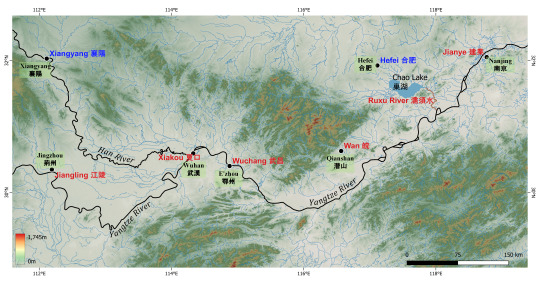
Ancient location names in red (Wu) and blue (Wei); Modern counterparts in black
Wu's stretch of Yangtze was rather long, and Wu's attempts to secure the entire stretch can be viewed in three blocks: West (~Jiangling), Central (~Wuchcang), East (~Jianye).
West
Jiangling
蓋江陵之得失,南北之分合判焉,東西之強弱系焉。此有識者所必爭也。《讀史方輿紀要》
Essentials of Geography for Reading History:
It is thus that Jiangling’s possession determines whether the north and south will split, and is related to the strength of the west and east. This is a place any knowledgeable man will surely contest.
魏遣曹真、夏侯尚、張郃等攻江陵,魏文帝自住宛,為其勢援……權遣潘璋、楊粲等解,而圍不解。時然城中兵多腫病,堪戰者裁五千人……將士皆失色,然晏如而無恐意,方厲吏士……魏攻圍然凡六月日……尚等不能克,乃徹攻退還。《三國志·朱然傳》
SGZ Biography of Zhu Ran:
Wei deployed Cao Zhen, Xiahou Shang, Zhang He and others to attack Jiangling, with Emperor Wen stationed at Wan to support them...... [Sun] Quan sent Pan Zhang, Yang Can and others to rescue, but the siege was not broken. At that time, [Zhu] Ran’s soldiers in the city were all ill, and only about 5000 can fight...... The soldiers were all afraid, but [Zhu] Ran remain calm with no fear, continuing to encourage the soldiers......Wei attacked and sieged [Zhu] Ran for 6 months...... [Xiahou] Shang and others could not overcome [Zhu Ran], and so stopped attacking and retreated.
Zhu Ran’s leadership and capabilities demonstrated here were certainly commendable, but the 6-month long successful defence with just 5000 people also illustrated a city that was well-prepared and well-equipped for war.
Central
Xiakou
Jiangling, however, was not the only key city in Jing.
劉表為荊州刺史,蒯越說表曰:南據江陵,北守襄陽,荊州八郡可傳檄而定。 《三國志·劉表傳》
SGZ Biography of Liu Biao:
Liu Bao was the Inspector of Jing. Kuai Yue advised [Liu] Biao: Occupy Jiangling in the south, hold Xiangyang in the north, and all 8 commanderies of Jing Province would be pacified with just a letter.
With the Han River, movement between Xiangyang and the Yangtze bank areas is very convenient, reinforcing Jiangling on both land and water. Hence Kuai Yue's advice. Unfortunately, Wu could not obtain Xiangyang for the entire Three Kingdoms period, and that connectivity became a deadly threat -- troops from Xiangyang can access the Yangtze easaily with the Han River, and pose a serious threat to the control of Jiangling and connections betweeen Yang and Jing Province.
This is where Xiakou comes in.
呉置督將於此……三國爭衡為吳之要害,吳常以重兵鎮之。《元和郡縣志》
Yuanhe Maps and Records of Prefectures and Counties:
Wu established commanders here..... During Three Kingdoms was a key strategic location for Wu.
Known commanders of Xiakou include: Cheng Pu, Sun Jiao, Sun Yi, Lu Shu(son of Lu Su), Sun Shen.
During Chibi, it was also here that Zhou Yu stationed his troops to fight against Cao Cao.
Wuchang
Wuchang used to be the capital of Wu for some time.
夫武昌者,東南得之而存,失之而亡者也……孫權知東南形勝必在上流也,於是城夏口,都武昌。《讀史方輿紀要》
Essentials of Geography for Reading History:
Wuchang, [if] the southeast obtain it they will survive, lose it and they will perish.....Sun Quan knew that the superior strategic foothold of the southeast is definitely upstream, hence defended Xiakou, and had capital at Wuchang.
旣城石頭,又城武昌,此吳人保江之根本也。《资治通鉴·卷六十九》
ZZTJ:
To defend at Shitou (fort near Jianye), and to also defend at Wuchang, this was how Wu was able to defend the Yangtze.
初權在武昌,欲還都建業,而慮水道泝流二千里,一旦有警,不相赴及……梁進曰:「……使武昌有精兵萬人,付智略者任將,常使嚴整……」權以梁計為最得。《三國志·孫奐傳》
SGZ Biography of Sun Huan:
At first [Sun] Quan was at Wuchuang, wishing to return the capital to Jianye, but considered the waterways of 2000 li, [that] once an alarm was raised, would not be able to reach in time ...... [Zhang] Liang admonished: "...... To have elite troops ten thousand in Wuchang, install someone with intelligence and strategy to be the general [in command], always be discplined and on alert……" [Sun] Quan liked [Zhang] Liang's proposal the most.
East
Wan
Wan sits between Wuchang and Jianye, and surrounded by rich plains that allowed for self-sufficiency. The stratgic location was too important even for Cao Cao to destroy:
徵令内移。江西遂虚,合肥以南惟有皖城。 《三國志·吳主傳》
SGZ Biography of Sun Quan:
[Cao Cao] ordered to relocate inwards. West of thee Yangtze became empty, south of Hefei only Wan city remained [occupied].
After Wu obtained Wan, lots of resources were devoted. When Jin finally conquered Wan:
焚其積榖百八十餘萬斛,毀船六百餘艘。《资治通鉴·卷八十》
ZZTJ:
Burned more than 1.8 million hu of stored grains, destroyed more than 600 boats.
Ruxu
The Ruxu River links Yangtze with the Chao Lake, which in turn is linked to the Central Plains and major rivers up north by a series of smaller rivers and canals.
十四年春三月,軍至譙,作輕舟,治水軍。秋七月,自渦入淮,出肥水,軍合肥。《三國志·武帝紀》
SGZ Annuals of Emperor Wu:
Spring third month, Fourteenth year [of Jian'an],the army reached Qiao, crafted light boats and trained the navy. Autumn seventh month, from the Guo River entered the Huai River, left [Huai] at Fei River [branch], and the army stationed at Hefei.
Thus, the Hefei-Ruxu passageway was the fastest and most efficient way to strike for both Wei and Wu.
十七年冬十月,公征孫權。 [權]聞曹公將來侵,作濡須塢。十八年春正月,進軍濡須口。權與相拒月餘。《三國志》
SGZ:
Winter tenth month, Seventeenth year [of Jian'an], Duke [Cao] attacked Sun Quan. [Sun Quan] hearing of Duke Cao's incoming attack, built the Ruxuwu (fortress). Spring first month, Eighteenth year [of Jian'an], [Cao] army advanced to Ruxukou. [Sun] Quan resisted them for more than a month.
後曹公又大出濡須,權以蒙為督,據前所立塢。《三國志·呂蒙傳》
SGZ Biography of Lu Meng:
Later Duke Cao again attacked Ruxu, [Sun] Quan had Lu Meng as the commander, resisting at previously established fortress (Ruxuwu).
黃武元年,魏使大司馬曹仁步騎數萬向濡須……時桓手下及所部兵,在者五千人,諸將業業,各有懼心……《三國志·朱桓傳》
SGZ Biography of Zhu Huan:
First year of Huangwu, Wei dispatched Commander-in-chief Cao Ren leading infantry and calvary amounting to a few ten thousands to attack Ruxu ....... At the time [Zhu] Huan only had 5000 soldiers and subordinates, everyone was afraid......
Yet with all these numerous attempts, and even the 5000-man defence, Ruxu was never broken once for the entire duration of Three Kingdoms.
曹操四越巢湖不成者,巢湖之水,南通大江,濡须正扼其冲……故虽有十万之师,未能寇大江也。《讀史方輿紀要》
Essentials of Geography for Reading History:
Cao Cao on four occassions went over the Chao Lake but failed. Chao Lake's waters can link to the Yangtze in the south. Ruxu is directly guarding this passageway......therefore even though having armies of ten thousand, was not able to invade the Yangtze.
Jianye
Jianye was originally called Moling.
權曰:「秣陵有小江百餘里,可以安大船,吾方理水軍,當移據之。」《三國志·張紘傳》
SGZ Biography of Zhang Hong:
[Sun] Quan said: "Moling had small rivers stretching for over a hundred li, suitable for big boats. Now I wish to manage the navy, should relocate andd station here.
石頭城,楚威王滅越置金陵邑,即此也。後漢建安十七年,吳大帝乃加修理,改名石頭城,用貯軍粮器械。《太平寰宇記》
Universal Geography of the Taiping Era:
Shitou (stone) City, is the Jinling town King Wei of Chu established after conquering Yue. Later Han Seventeenth year of Jian'an, Emperor Da of Wu (Sun Quan) with further renovations, renamed it to Shitou City, used for storing military grains and equipment.
Linking it all
To facilitate communication between the blocks, smoke signals were also used:
烽火以炬置孤山頭……寇至則舉以相告,一夕可行萬里。《三國志·吳主傳》
SGZ Biography of Sun Quan:
Smoke signals were ignited and placed on isolated mountains peaks.... When enemies arrive will then lift it up to inform, in one night can travel ten thousand li.
References
《论江淮地区在魏吴对抗中的战略地位》 (Discussing the strategic importance of Jianghuai area in the Wei-Wu conflicts)
《论三国时期孙吴政权的长江防御体系》 (Discussing the Yangtze defence system of the Sun Wu government during the Three Kingdoms)
20 notes
·
View notes
Text
Chapter 49
Pan'er panicked a little and glanced at the Prince's eyes subconsciously.But then Zhang Laishun hurried in, holding a lacquered letter in his hand. When the prince looked over, Zhang Laishun handed over the letter. Usually, the prince used a jade knife to open such lacquered letters, but now that he was out and about, he didn't have to be so particular about it. The prince tore open the letter with his hand and opened it to read it, but the more he read, the more he frowned.
Suddenly he stood up and said to Pan'er again, "I am going to Gaoyou, stay here and I will leave some men behind to protect you.""Going to Gaoyou now, but what has happened?" Pan'er asked without thinking. Only when the words were out of her mouth did she realise that she had broken a taboo.
Who knew that the prince didn't say anything, but only patted her hand: "It's alright, don't worry, it's the southern patrol that had an incident at Gaoyou, I'll go over there."The Prince did not even bother to change his clothes, so he sent Zhang Laishun to find Jiang Yi and ordered all the guards to leave. -- After the prince left, Pan'er also wilted.
Usually she was always in a flurry, dragging the prince here and there, but in the following days after the Prince's departure, she didn't even take a step outside, and Xiang Pu and Qing Dai went out to buy all the dishes needed for the house.She was thinking about that day, wondering if he was jealous.
She wasn't quite sure, but without giving her a chance to be certain at all, the Prince was gone. Pan'er was frustrated again, lamenting her bad luck, and there was no denying that at that moment when the Prince asked that question, she was apprehensive but also had a hint of surprise that she couldn't hide.If he was really jealous, did it mean that he already had a little bit of her in his heart? Since Pan'er had suddenly regained her youth, she had always avoided the decades she had spent with Emperor Jianping, not thinking about how he had been back then, but treating him as a new, young Emperor Jianping without the experience of those decades. In this world, there is no such thing as unexplained heart-pleasure, even in a previous life, the two of them had gone through many years of storms, and it was only because she did not make a wrong step that she gradually entered his heart until she was held in his hands.
This kind of love is so humble that Pan'er never thinks about it, and she always tells herself that there is no love between them, but only that he pampers her and she receives it.But since she had been reborn, she had discovered that many things had changed, and that he had changed too. Only then did she realise that the 'Jianping Emperor' was not always above the world, nor was he an emperor with an unpredictable mind, but he also had a vulnerable, confused and even lonely childish side.
Every side of him surprised her and made her feel that the distance between them was narrowing, but to what degree? How far did she had to go before she reached the end, she didn't know.And this time she had seen the opportunity, only to have it spoiled. After thinking about all this, Pan'er began to worry again about the Prince's safety. If something had happened to the southern tour party on the road, it could only be an attack. Gaoyou had one of the largest freshwater lakes in Jiangsu, Gaoyou Lake, which was made up of several lakes, where the waterways were dense and intricate, could it be that someone had taken advantage of the opportunity? No one could answer this, she could only wait in silence. At this very moment, as Pan'er had expected, Dazhi and Su Hai came to the door. When someone came to report, she went to change her clothes and waited in a small courtyard near the back door, which she had prepared in advance. In a short time, Xiang Pu brought the two men in. "Pan'er, I didn't see that you were living quite well, you have a maid to serve you?" Su Hai's voice rang out from outside before he had even walked in. The maid he was referring to was Xiang Pu. "I don't have a maid, this is the maid of the house, you have to obey the rules of the house, if Dazhi hadn't come, I wouldn't even have let anyone bring you in." Pan'er stood in the room and said. "Look what you're saying, are you throwing your face at your brother? I'm not talking to you, you've been talking back to me since you were a little girl." This was the truth, Pan'er was the cutest when she was little, everyone liked her, but she didn't get along with Su Hai. "Come on Su Hai, we agreed to come to see Pan'er today, so don't fight with her." Dazhi advised from the side. Pan'er didn't let them, and sat herself down at the round table. The house was small, just three rooms, so there were no chairs in the middle room, but a round table and a few round stools. "Sit down, there is no good tea, you can just drink it." Pan'er took out a few open cups from the tea tray and poured a few cups of tea from the teapot. Usually, if you use this kind of tea set, it means that the tea is not good and you are not guilty of making it separately. But for Su Hai and Dazhi, they couldn't tell the difference between good and bad tea, they just drank it to quench their thirst. Su Hai drank the tea with a cup in his hand, while his eyes went around the room. He came to the conclusion that the life of Pan'er was no better than that of his family.
However, if she could live in this house and her husband was a bookkeeper, he must be highly valued by his superiors, so she would not be short of silver.
While he was thinking about this, Dazhi was already talking to Pan'er.Dazhi asked her how she had married and how she was getting on, making Pan'er dizzy. "Dazhi, listen to what I have to tell you slowly ......" The story was that she had been bought by a rich man and followed him back to her hometown, but the man died of an emergency halfway through the journey. When she was at her most desperate, she met her current husband, who did not dislike her origins but treated her with sincerity, and she married him. After that, she came to Yangzhou to make a living. The other man, who had studied for a few years, worked as a bookkeeper in this family's house, and only then did they settle down here. "A few years of study and you're working as a bookkeeper? I'm afraid this boy has some relatives with this family, right?" Su Hai was usually at the docks and knew all the people of the three religions, so he naturally knew what was going on inside. "I'm a woman, I don't know anything about this, but the master is quite good to us." Pan'er said. Dazhi's heart sank when he heard this 'woman's family', but then he pulled himself together and asked, "Is he good to you then?" Well? Naturally, he was good, at least better than in his previous life. "He treats me very well." "Then I'm relieved." Dazhi murmured. He was a bit disgusted with his current self, wishing that the man would be good to Pan'er, whose life was too bitter after all, but when he really heard that the man was good to her, he was a bit resigned. Resigned to what? Only that he was incapable. "Then he...
So he doesn't mind you having been a concubine before?" Su Hai suddenly said.Pan'er had the urge to have Su Hai dragged out and beaten up, that was what she hated most about Su Hai, he always spoke out of place without a word and liked to poke where it hurt. "Hai Zi, what the hell are you talking about! That man doesn't mind Pan'er, that means he's a good person and that Pan'er is blessed." Dazhi's voice slowly weakened at the mention of 'that man'. When Su Hai saw that Pan'er was also glaring at him, he said, "Okay, okay, I said the wrong thing, I didn't mean it that way." Pan'er did not want to pay attention to him. He asked Dazhi, "Brother Dazhi, how are you doing these days? Dazhi didn't expect Pan'er to ask such a question, and he felt saddened and depressed for a while. "Not yet, I'm not in a hurry, I'm not in a hurry." In fact, Dazhi was almost twenty years old, so how could he not be in a hurry. "I remember that Aunt Xue has always liked Sister Xiumei very much, I think Sister Xiumei hasn't married yet, I remember that Sister Xiumei has always been good to Brother Dazhi, why don't Brother Dazhi marry Sister Xiumei, so as not to delay Sister Xiumei." Pan'er said in a joking tone. Xiumei was also one of their childhood friends and had known and spent much more time with Dazhi than Dazhi had with Pan'er, who after all had left that alley after she was eight. "Xiumei hasn't married yet. Let's not talk about that, by the way, why isn't that man ...... your husband around today?" Dazhi asked. "He ah? He's gone out with the master to collect his accounts, and I don't know when he'll be back yet." Hearing this, Su Hai was busy asking, "Going out with the lord to collect debts? This means that my brother-in-law is quite capable and well respected. Why don't you talk to my brother-in-law and ask him to get me to work here as a bookkeeper too?" Pan'er closed her eyes and said patiently, "Get your priorities straight before you say anything else. "If you don't want to be a bookkeeper, you can do something else, do you want your brother to be a hard worker for the rest of his life." Su Hai said with a slick face, justifying his words as he said them.
"The family received half of the silver from the sale of me from Zhao Wu's family, and that much silver is enough for the family to make ends meet with a small business."Su Hai choked and said, "Don't mention the silver, it's not enough for anything. Hearing this, Pan'er was a bit surprised. Since when did Su Hai, who was so lazy and easy-going, know not to sit on his laurels? She always felt that something was wrong and stared at Su Hai for a few moments. "What are you looking at? I asked you to help your own brother find a job, and you're pushing back, do you still treat me like your own brother?" Su Hai stammered. Pan'er rolled her eyes in her heart, "You're not my real brother either, how can you sell your own daughter? A few hundred taels of silver is enough to repay the kindness of raising her, not to mention the fact that she was raised by them for only a few years, and now here he was talking about them being siblings. "The only ones who are not either related to the family and are able to make a living from their abilities are the few people who have been sold into the house. For instance, your brother-in-law, the head of the family, might have missed out on the imperial examinations, but he was well read and smart enough to work as an accountant. He is a smart and well-educated bookkeeper. You can only understand a few words, and if you can't even read all the words, why would they hire you?" "Hey, you're blaming me for not being able to read and write, but who can blame me? If our family had the means to pay for my studies, I might have been able to get a scholarship when I got off the field, why would I be so delayed?" Every time Pan'er spoke to Su Hai, she was angry and helpless. It was true to say that he was overly ambitious, but what he said sometimes was also a bit sophomoric.
It was true that in the current world, not many people really came out of poverty to study, because the matter of studying itself was not for the poor, and every year, just the ink, paper and ink was a considerable expense, almost enough for an ordinary family to eat for a year or two.If you were a farmer, a natural disaster would mean that your whole family would have to go through a famine, not to mention studying.
In the past, when Su Jiang and Su Hai were still growing up, they relied on Su Datian to do hard work to earn money, and Yao Jinzhi occasionally went out to pick up some jobs to supplement the family's income, so that they could raise their three children.
Pan'er still remembered that when she was a child, Yao Jinzhi used to say that Suzhou was better than Yangzhou, and that if the whole family had a loom in Suzhou, they would be able to make a living.But the weaving industry in Yangzhou is not well developed, and to put it bluntly, the city has a prosperity that does not match, and this prosperity is due to the fact that the salt from the two Huaihai salt fields has to pass through Yangzhou. Because of the arrival of the salt merchants, the city became more prosperous every day, more prosperous than it could bear. The rich are naturally well off here, because Yangzhou has everything, and the rarest things in the world may not be found in Suzhou, but they are certainly found in Yangzhou, because there are salt merchants in Yangzhou who are so rich that they can throw away a thousand dollars without changing their faces. But the poor were not so well off here, because people knew that Yangzhou was rich, so prices in Yangzhou were very high, even higher than in Suzhou. Yao Jinzhi was from Suzhou, and all this was what Pan'er had heard from her as a child. At that time, she also questioned why she had to stay in Yangzhou if it was not good and could not go to Suzhou. What did Yao Jinzhi answer her at that time? "Yangzhou is your father's roots, people can't live without them. Yao Jinzhi was also from a poor background, otherwise she would not have left her hometown to marry in Yangzhou. This was precisely why Pan'er did not hate the Su family, because she had never seen the family's rice jar full since she was a child, and only when it ran out of rice did Yao Jinzhi fumble for some coins and ask Su Jiang and Su Hai to buy rice to cook. She didn't know why people from such a family had to pick her up and add to the burden of the family. If they wanted to sell her for silver, they could have done so then, so why would they wait until more than ten years later. The Su family had always treated her well, and when Pan'er was still at home anyway, even if the family had no rice left in the pot, there was a mouthful for her if there was a mouthful for Su Jiang and Su Hai. So all those years that 'Su Pan'er' was kept in Zhao Wu's house, she always wanted to go home, wanted to wait for her mother to gather enough silver to bring her home, so when she was sold at first, she was resentful in her heart. At that time, she did not know that she was not a member of the Su family and had really developed real feelings for the family.
It was not until much later that she learned that her origins were otherwise hidden, but it was precisely because she learned later that it was so complicated when she thought of this family."Hey, brother-in-law, you're back, huh? I was just telling Pan'er about you, didn't I say you were out collecting bills." Pan'er looked up and saw the Prince standing outside the door, somewhat winded and dusty, still wearing the same old clothes.
12 notes
·
View notes
Photo
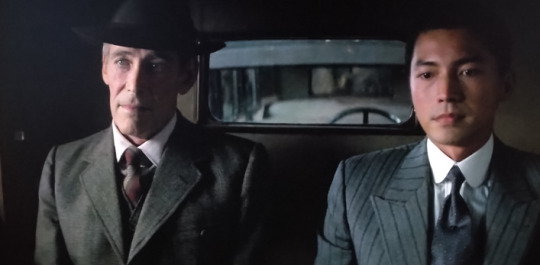
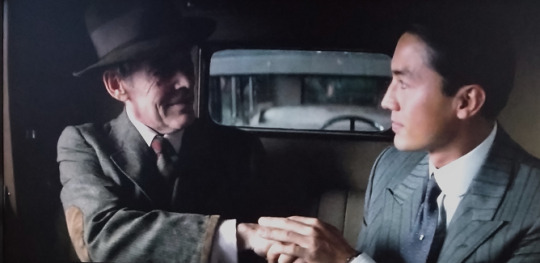
Peter O'Toole and John Lone
The Last Emperor (1987)
directed by Bernardo Bertolucci
John Lone
as Pu Yi (adult)
Peter O'Toole
as Reginald Johnston
14 notes
·
View notes
Text
David Cronenberg on the casting of M.butterfly
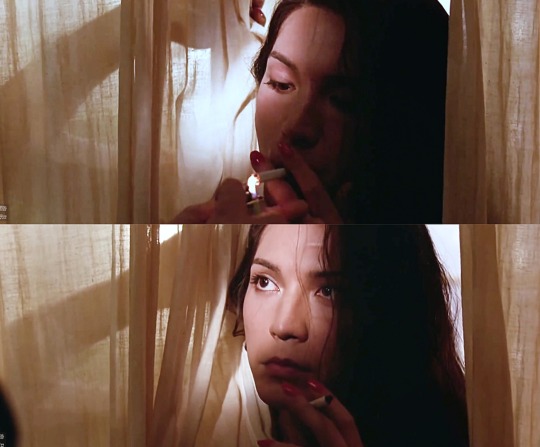

In M. Butterfly, viewers know that Song Liling is a man. The film, then, is about the creation and delusion of love, sex and romance,and finding the right man to play a woman was a task.
A three-hour meeting with Lone, who was Emperor Pu Yi in The Last Emperor, convinced him that he'd found his man-woman.
Lone is a believable woman, quiet-spoken but not without a certain steely edge.
【1】19930910 - Edmonton Journal
"The original idea was that we were going to have Jeremy Irons and then, say, a beautiful unknown Taiwanese boy who was perfect as a woman and then would be perfect when he was transformed into a guy.
"Well, that person turned out not to exist. Beautiful boys who were convincing as women stayed beautiful boys when they were supposed to be men.
"And that's what happens to the Jaye Davidson character in The Crying Game. There's a scene where his hair has cut and he still remains this really cute girl. You never see her or have to see her as a man with the exception of the one scene where she is naked, which I think makes it non-threatening for a lot of middle-class men."
In M. Butterfly, viewers know that Song Liling is a man. The film, then, is about the creation and delusion of love, sex and romance,and finding the right man to play a woman was a task.
B.D. Wong, who played the role on Broadway couldn't get past the Cronenberg test: the actor who played Song Liling had to be believable in close-up.
"I loved B.D. Wong. He's a very good looking man, but a very ugly woman. If he was in drag and came up to you at a party, you wouldn't fall for it."
And a transsexual Cronenberg considered "would have to run around naked for the whole movie to convince anyone that he really was a man."
A three-hour meeting with Lone, who was Emperor Pu Yi in The Last Emperor, convinced him that he'd found his man-woman.
Lone is a believable woman, quiet-spoken but not without a certain steely edge.
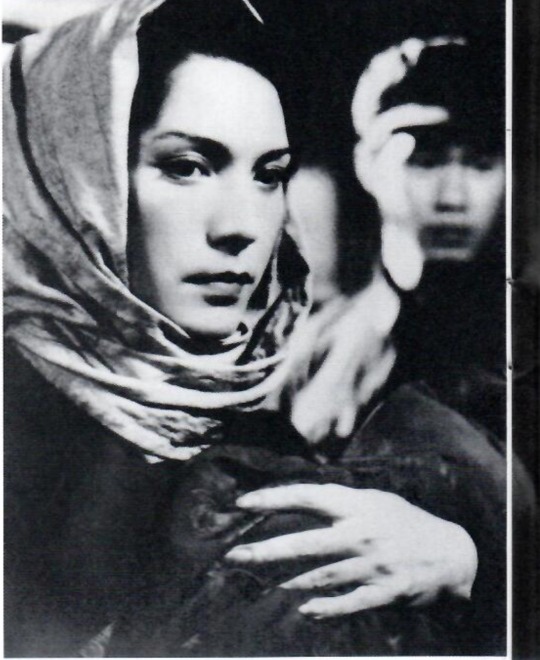
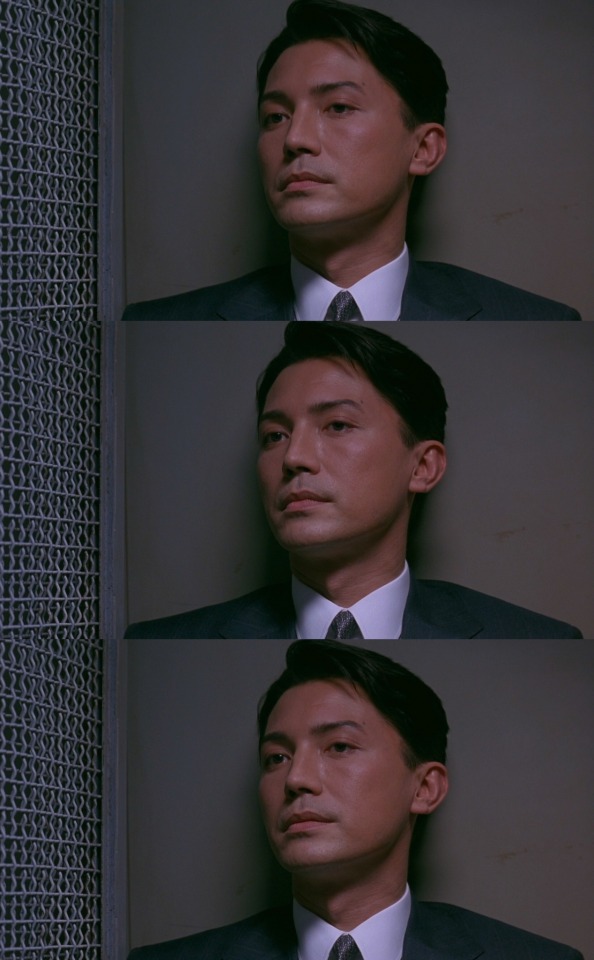

———————————————————————
I was very convinced after trying to cast several unknowns or not-too-well-known Chinese actors that John Lone was the right man to play this woman.
It was obvious that everybody except this character knew that this was a man playing a woman in the Peking Opera. In other words, it was a man who fell in love with a man could not admit that he was in love with a man and so deceived himself. He wanted to believe that this was a woman that he fell in love with.
【2】David Cronenberg Discusses M. Butterfly 2009
youtube
…
And so then the question of casting went to the Chinese character Song Liling. Who will play this character? Now if you haven't seen the movie you should stop watching this now because from now on there will be many spoilers involved.
It's impossible for me to discuss the movie without talking about some of the surprises that there are in it. So watch the movie and then come back.
So the question is, who will play the woman who is the Chinese opera singer that the Jeremy Irons character falls in love with, who, in fact, is a man?
Because it was very traditional in Peking Opera for men to play women's roles. And it was very interesting.
When the movie was released, there was quite a bit of confusion in terms of the response to the movie because there had been two movies that came out at the same time. Well, that confused the response, I think, to M. Butterfly.
One was The Crying Game, a Neil Jordan film, which pivoted on a woman who the main character falls in love with who turns out to be a man. That role was played by an actor named Jaye Davidson, who was really totally unknown. And of course the name Jaye is very androgynous. Could be a man, could be a woman. So when you see that name in the credits, it doesn't really give anything away. That movie was very successful and people were quite shocked in that film to discover that the character that they thought was a beautiful woman was in fact a man. The other movie that came out at about the same time was Farewell My Concubine, a Chen Kaige film about ,what?It was about homosexuality in the Peking Opera.
Now, the chances of all of these things coming together at the same time was very odd, to say the least, but I now go back to the casting of this character.
I was very convinced after trying to cast several unknowns or not-too-well-known Chinese actors that John Lone was the right man to play this woman.
The problem there was that John Lone, if you have his name in the credits, he was quite famous for having done many films including The Last Emperor, Bernardo Bertolucci's wonderful film. John Lone was the grown-up last emperor and he was very well-known.
So immediately in the credits, if it says Jeremy Irons, John Lone, you know that there's a man and ultimately as soon as you see him, you recognize him. And I think this was considered a flaw in my movie because people were not fooled that this character was a woman.They knew right away that it was a man.
But actually, my understanding of the real story having done quite a bit research and talked to many people who had met the acutal people and also having talked to Bernard Boursicot, who was the man who Jeremy Irons is portraying. It was obvious that everybody except this character knew that this was a man playing a woman in the Peking Opera. In other words, it was a man who fell in love with a man could not admit that he was in love with a man and so deceived himself. He wanted to believe that this was a woman that he fell in love with. So it was quite a different structure from something like The Crying Game.

And it's in a way a more subtle response that you need from the audience because the audience is not being deceived but the character is. And that was our approach.
And people have criticized the casting of John Lone not because of his acting because he's a wonderful actor but because of the structure that was assumed that was really not what we were trying to do.
So that's a preamble into my experience of the movie which was very exciting for me.
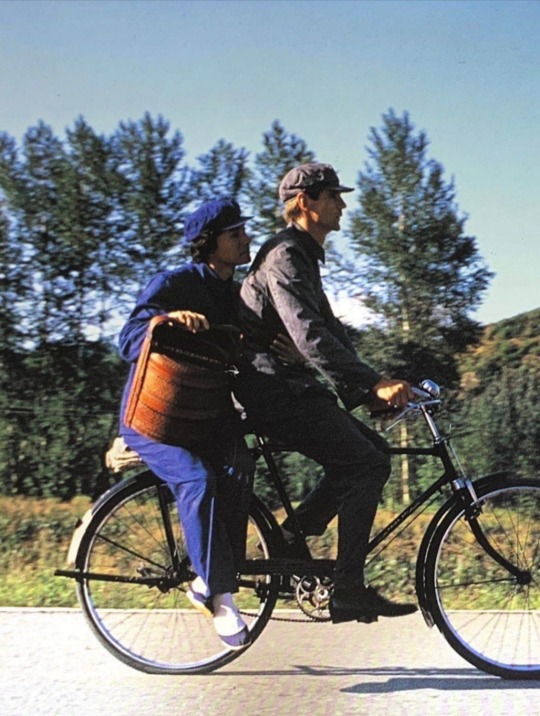

34 notes
·
View notes
Note
that costumer service remimnded me of the story of how puyi the last chinese emperor as a child was rude to every single person who worked in the palace but years after being arrested by the new mao gov he realized how vile he behaved and to make amends (in a way) started to work as a server in restaurants and would bow to every costumer every single time
What Edward Behr has to say about his life (reading the wikipedia article but it's pretty much just a syntesis of his biography of the emperor) is pretty interesting, speficially the part where westerners were surprised that while europeans hanged or killed people like William Joyce, Mussolini or Laval, Pu Yi only had to go through 9 years of prison and then just start a life anew
2 notes
·
View notes
Text
The Last Emperor (Movie Review) | An Informative Historical Drama
36 years ago this week the epic portrayal of an Emperor, a citizen's life graced our screen and here's my review of The Last Emperor
#TheLastEmperor #ThrowbackThursday #MovieReview
Bernardo Bertolucci (Director), Puyi (Novel)CASTJohn LoneJoan ChenPeter O’TooleYing RuochengVictor WongDennis DunVivian WuRyuichi SakamotoBased on From Emperor to Citizen, The Autobiography of Aisin-Gioro Pu Yi by Puyi
Review
I’ve been aware of this movie for a long time but only recently saw it when one of my local movie theatre put it back on the big screen. This Academy Awards winning…
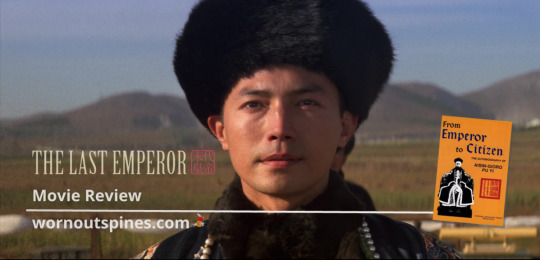
View On WordPress
#Based on a book#Based on a novel#Bernado Bertolucci#Biography#Book adaptation#Book to Film#Book to Movie#Cary-Hiroyuki Tagawa#Dennis Dun#Drama#Enzo Ungari#Fumihiko Ikeda#Garcwrites#Guang Fan#Henry Kyi#history#Jade Go#Joan Chen#John Lone#Maggie Han#Mark Peploe#movie adaptation#movie lovers#movie review#movies#peter o&039;toole#Puyi#Review#Ric Young#Richard Vuu
0 notes
Text
The Last Emperor on Letterboxd
0 notes
Photo

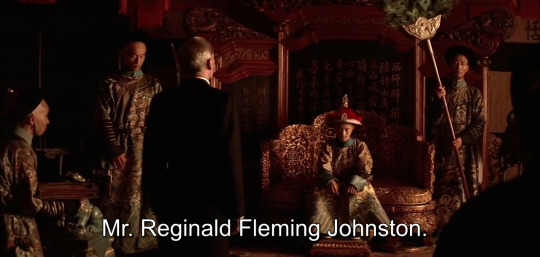

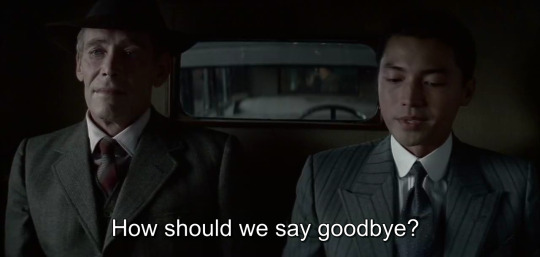

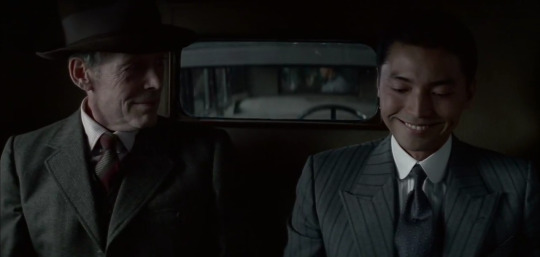



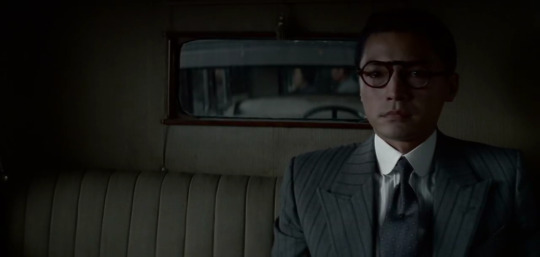
The last emperor, 1987
#biography#drama#history#the last emperor#bernardo bertolucci#enzo ungari#mark peploe#puyi#aisin-gioro pu yi#peter o'toole#john lone#farewell
24 notes
·
View notes
Text
Blog 4 sources and significance
An analysis of colour and scene design in the film“ The last Emperor(1987)”
This movie tells the historical story of Puyi, the last emperor of the Qing Dynasty in China. The director portrays the process of the Qing Dynasty's downfall from the perspective of Puyi, the last emperor of China. The Last Emperor is a milestone for Chinese historical movies because it was the first to show a specific period at the end of the Chinese month Furthermore, the director's perspective of this strategic character has become spotlights in the history of world Cinema (Cheng, 2019) The entire film brings a repressive experience to the audience, and the director also wants the audience to follow Pu Yi to get closer to that turbulent dynasty.
youtube
The Emperor is on high,Youtube(2015). https://youtu.be/liUd2tukV3E?si=wVVsZ6FrXrGAjSX8(Accessed: 7 February 2024)
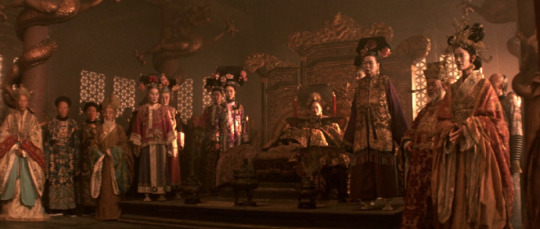
screenshoot from The last Emperor(1987)
The conversion of color tones and lighting in this film
The director cleverly handled the color tones in the movie to reflect the Emperor Puyi of different periods. The first part is about Puyi's childhood court life. The colors and tones in this part of the film are yellow gray and orange gray, providing the audience with a comfortable experience because Puyi's life was very happy at that time. Many servants served him, and all courtiers had to kneel down to him. The first part of the lighting design was also a comfortable and bright yellow. The second part is about Japan's invasion of China, forcing Emperor Puyi and Empress Wanrong to seek refuge in the Changchun Imperial Palace. At this time, Puyi had already been controlled by the Japanese. The color tone of the second part was brown black, and the lighting design was a very oppressive white light. Empress Wanrong's clothing was mostly white and gray, giving the audience a sense of oppression. It is worth noting that Wanrong's makeup also reflected a pale color, Because she suffers from severe depression and needs to rely on smoking a large amount of opium to alleviate it. The third part is about the establishment of New China by the Communist Party, and Pu Yi was arrested and imprisoned. At this time, the color tone was mainly dark green, and Pu Yi became a prisoner. The dark green lighting design brought a desolate atmosphere to the audience. This reflects the director's use of color tone and lighting conversion to reflect Pu Yi's absurd life

screenshoot from The last Emperor(1987)
2.The design of the main hall: a metaphor for the end of the dynasty
The highlight of this movie is the interior scenes of the palace. The main scene director filmed the process of Empress Dowager Cixi's passing, which in history also marked the end of the Qing Dynasty. Prince Puyi also became emperor after her passing. In order to provide the audience with a better experience, the palace scene of Empress Dowager Cixi's death is designed to be very majestic. Firstly, the film uses a dark brown color scheme, symbolizing the end of the dynasty. The interior of the main hall is symmetrically arranged with red pillars, and the wooden carvings surrounding the dragons represent the majesty of power. The innermost part of the main hall is a dragon chair and a screen, and Empress Dowager Cixi sits on it waiting for death. It is worth noting that in order to reflect the dignity of Empress Dowager Cixi, the director designed very intricate clothing patterns for those standing around her in character design, while the corresponding flag decoration of Empress Dowager Cixi was very simple. Because in addition to the representativeness of character clothing colors, the color of character accessories can also serve as a symbol to reveal the character's psychological activities. Black gives the impression of being oppressive, cold, and serious (Wang, Yang and Kang, 2022). It is worth noting the black hair bun decoration on the head of Empress Dowager Cixi. This Qing Dynasty style hair bun is called the "flag head", which can stand out in the surrounding intricate patterns, forming a large black color block to show her dignity. This is also an important part of the director's scene design.
In short, the director of this film utilized changes in tone and lighting atmosphere to reflect Pu Yi's absurd life and the downfall of the Qing Dynasty. In addition, the director also reflected the scope of the end of the Qing Dynasty in the scene design.
Reference:
Cheng, Y. (2019, July). The Last Emperor Film Analysis From the Technique to the View of the Western World. In 4th International Conference on Humanities Science, Management and Education Technology (HSMET 2019) (pp. 638-644). Atlantis Press.(Accessed: 7 February 2024)
Wang , K, Yang ,T& Kang Y(2022). Analysis of Visual Symbolic Elements in Historical Theme Films - Taking the Film "The Last Emperor" as an Example. Soundscreen World (09), 53-55 . Available at:https://www.cnki.net (Accessed: 7 February 2024)
The Emperor is on high,Youtube(2015). https://youtu.be/liUd2tukV3E?si=wVVsZ6FrXrGAjSX8(Accessed: 7 February 2024)
1 note
·
View note
Note
What’s your stance on the death penalty, Wren?
Hi anon!
I am firmly against the death penalty in almost all cases, and when it is used it should only ever be as a last resort. I am going to answer this to the best of my ability, but I am coming at this from the perspective of a communist, and specifically one who is from the United States, the nation with the largest prison population on the planet. When it comes to things like the killing of dictators, capitalist or monarchical figureheads, and tyrants, such as the execution of the Romanov family during the Bolshevik revolution or the execution of Nazi officers post world war II, I am generally strongly in support. This is because I believe that in cases such as the example given, people who have immense amounts of wealth and power that they use to further the oppression of others can not, in most cases can not be taught to accept not having this power - there is no way to teach them that what they have been doing was wrong and there is often no way for them to possibly atone for the crimes they have committed. I think in the cases of populist/monarchic/dictatorial leaders who are young (any age below roughly 26) there is a much greater chance of them being willing to change and accept the new societal structure in which they now live - a great example of this is the last emperor of China, Pu-yi. There should always be an effort made to spare children in particular, whenever possible
When it comes to the death penalty as a punishment for prisoners (such as USAmerican prisoners), I am completely and unequivocally against it. Firstly, I believe the aim of any sort of prison or jail should be reformative and exist as a way to teach people how and why what they did was wrong. Secondly, a majority of prisoners in the United States, as well as globally, are non-violent offenders and many are simply victims of circumstance - like people who steal to survive or because of drug possession. Third, there is a staggeringly high number of innocent people who are wrongfully executed in the United States every year, and I believe that even one case of wrongful death means that the practice should be abandoned completely.
Of course, there are circumstances in which prisoners should be executed, such as mass murderers and torturers. However, I think this is EXTREMELY RARE and once again should only be used if no possible forms of reeducation could occur AND there is no possible way to safely detain them until they die of natural causes. I still believe they should be executed in a humane manner and as it currently stands, all methods of execution used in the United States are inhumane and unreasonably cruel and so I do not believe it should ever be practiced unless there is a way to make it so.
Sorry for the longwinded response. I hope that answers your question!
0 notes
Text
my dad is listening to the Pu Yi, Last Emperor of China theme song...
(As It Was by Harry Styles)
1 note
·
View note